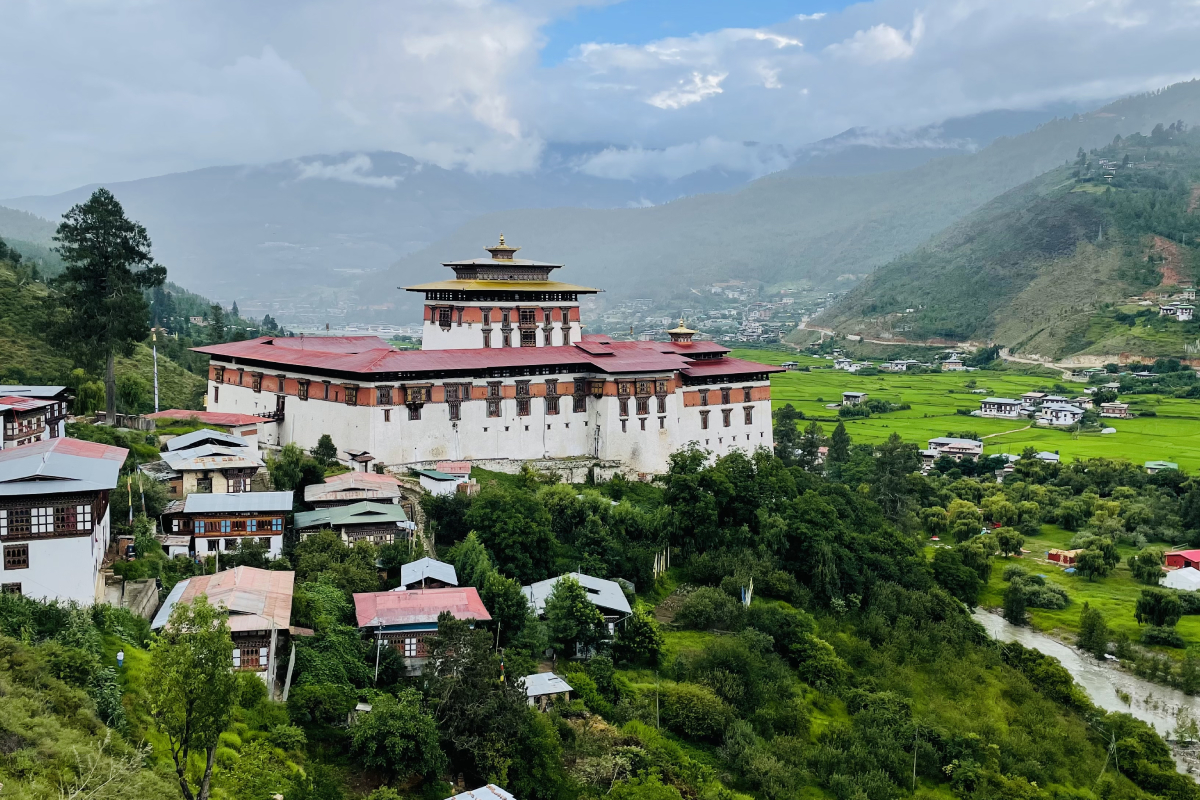
The Kingdom of Bhutan is reopening its borders after two and a half years on September 23, along with a revised tourism levy of $200 per day for international tourists and ₹1,200 for Indian visitors.

The Kingdom of Bhutan is reopening its borders after two and a half years on September 23, along with a revised tourism levy, called the sustainable development fee, of $200 per day for international tourists and ₹1,200 for Indian visitors.
The Royal Government of Bhutan has re-strategized its ‘High value, Low volume’ tourism policy to ensure sustainable use of tourism resources and to create an enabling environment for a vibrant, non-discriminatory, inclusive and high-value tourism industry in Bhutan.
In the earlier regime, foreign tourists were offered a minimum daily package ranging from $200 to $250, of which $65 went to the government coffers as a sustainable development fee.
The daily package covered guide, accommodation, transportation, entry fees to monuments and meals – all arranged by the tour operators. For Indian visitors, this was waived off and they were also allowed to arrange their accommodation and vehicles.
The new policy eliminated the daily package rate for foreign nationals with a hefty hike in the Substantiable Development Fee, from $65 to $200 per day. However, the visitors will have more flexibility in planning and booking their trips. Tourists will now be able to engage their desired service providers directly and pay for their services accordingly. Tour guides are no longer mandatory for all trips, but they are required for travellers who plan to trek or visit monuments.
Launching the online visa and permit portal today in Thimphu, Bhutan’s Prime Minister Dr Lotay Tshering said that it is the right time for Bhutan to reset its vision, post-pandemic and that tourism is one of the many bold transformations that are taking place in the country.
“We must ensure that we are a high-value society and that our communities are clean and safe, and our environment is protected and cherished. We are officially opening our hearts and doors to visitors and the entire nation is a tourism industry and every Bhutanese is a host,” he said, adding that the tourism industry should transform into a well-paying and professional job for locals.
“Today we all know how difficult it is to maintain 70 per cent of the country under forest cover, making us a carbon-negative country when other countries are trying to achieve carbon neutrality. Isn’t this something that many in the world would be interested in knowing?” he said.
The Director General of the Tourism Council of Bhutan, Dorji Dhradhul, said that the sustainable development fee will go towards improving the infrastructure and services of the industry and bolstering the travel experience.
An e-visa or e-permit will be approved for 90 days, and tourists can travel anytime within those 90 days. Visa or permit applications will be directly submitted to the department of immigration’s online system. A tourist with a visa or permit will be permitted to visit any area except those which fall within restricted or prohibited areas.
The country has also done away with mandatory RT-PCR tests upon arrival. However, tourists coming to Bhutan must be fully vaccinated and will be required to produce travel insurance.
A new pedestrian terminal with modern amenities and facilities was recently built in Phuentsholing, the town bordering the Indian district of Jalpaiguri, to provide travellers with a comfortable and pleasant experience. This will restrict the free flow of people, unlike before.
According to an official from the Department of Immigration, the unregulated movement of a large number of people daily across an international border poses security risks for both countries.
All those crossing the international border will be required to complete immigration formalities at the terminal to enter or exit the country. Indian nationals, however, will be allowed to visit Phuentsholing after producing proof of identity (voter card or passport) and completing immigration formalities at the pedestrian terminal.
The sustainable development fee of ₹1,200 will be waived for daytime Indian visitors visiting towns bordering India. However, SDF will be levied on visitors spending nights in border towns.
Indian-registered vehicles will also be allowed within the designated zone without any charges. However, if such vehicles cross the designated zone, they will be required to pay Nu 4,500 per day.